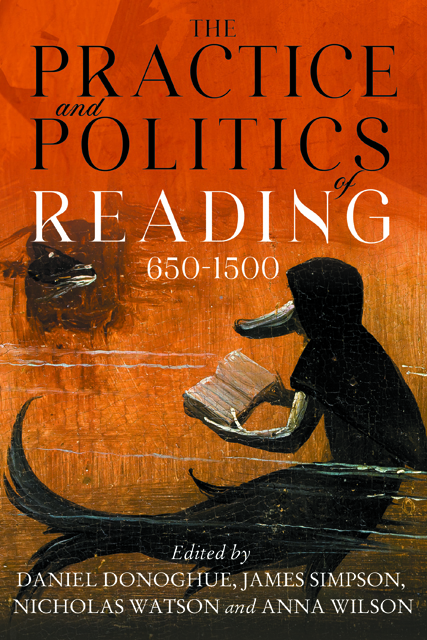7 - Who Reads Now? The Anxieties of Millennial Reading: The 2019 Morton W. Bloomfield Lecture
Published online by Cambridge University Press: 11 January 2023
Summary
Two starkly different ideologies of reading appear in a century bracketed by the Viking wars in Anglo-Saxon England. These ideologies have much to do with the shifting relation between the two languages of culture in England during those years as well as the growing political hegemony of the house of Wessex and, of course, the Benedictine Reform. While they are associated with two very different individuals, a king – Alfred – and a monk and abbot – Ælfric – these ideologies find a voice in the same medium – a roadmap to an accompanying work that the work itself cannot offer. While we label these statements “prefaces,” they are, more often, prefatory letters between identified authors and specific readers and are thus more revelatory of a particular relationship crafted through reading than the modern preface of a writer to his or her public. In their moment, they are about who reads.
Both the Alfredian prefatory letter to the Old English translation of the Regula pastoralis (the Preface, as it is known) and the several prefatory letters of Ælfric expect, perhaps demand, individual readers. The recipients of the Alfredian prefatory letter were bishops. Ælfric’s addressees comprised a variety of readers, religious and lay, from widely different social strata. The sharply different reading environments and ideologies of reading that gave rise to these letters bespeak a change in the understanding of reading itself over this century. Stated briefly, the Alfredian Preface understood vernacular reading as pure techne. For whatever reason (and we might imagine several, including a relatively modest spread of literacy in the late ninth century), the Alfredian Preface is happy to trust wise wealhstodas (wise translators) with the anterior act of conserving the meaning of their source texts for vernacular consumption. Within the Alfredian ideology articulated in the Preface, reading in English, therefore, was simply an act of decoding words on a page. In striking contrast, reading for Ælfric was a composite set of highly fraught activities. And as we shall see in his various statements about reading, Ælfric puts into tension the two kinds of reading that Stephen Best and Sharon Marcus identify as surface and symptomatic reading.
- Type
- Chapter
- Information
- The Practice and Politics of Reading, 650-1500 , pp. 161 - 180Publisher: Boydell & BrewerPrint publication year: 2022



